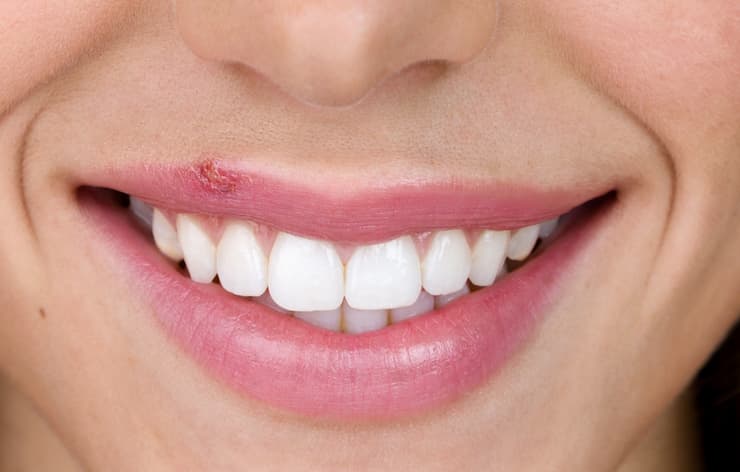Cold sores
How Common Are Cold Sores?
The Journal of Esthetic and Restorative Dentistry (JERD) compiled some interesting statistics about the prevalence and tendencies of HSV-1. Researchers calculated that 85 per cent of Americans are infected with HSV-1. The virus is usually contracted in early childhood or adolescence. There are prodromal symptoms that accompany acquiring the infection, which are malaise, fever and swollen glands. The oral tissues inside the mouth may form vesicles and ulcers. The recovery time is about 10 to 14 days.
Recurrent Herpes Labialis
After the recovery of a fever blister, the virus doesn’t disappear but goes into a nerve and then remains in the oral region in the trigeminal nerve ganglion, notes the Journal of NeuroVirology. Sixty per cent of infected people can have “silent recurrences,” which means that there are no outward symptoms. When cold sores erupt, they look like fluid-filled blisters that may crust over and ooze, says the Mayo Clinic. However, even if there isn’t a blister at the time, HSV-1 is still highly contagious.
Some individuals have recurrent outbreaks of the virus; approximately 40 per cent, according to JERD. The immune system usually controls the outbreaks, but in times of stress, sun exposure to the lips, and other illnesses, there may be an outbreak. The outbreak will be proceeded by prodromal signs that are warning that the virus is reactivated in the area, such as itching and burning on the outer border of an area of the lips. This will be followed by vesicles and ulceration.
How to Manage Cold Sores
Prevention is the best approach to manage a recurrence. There is not a permanent cure for the virus. During prolonged sun exposure, protect your lips with sunscreen. At the start of prodromal signs, you can book an appointment with your dentist to have the area treated with laser therapy. The next step, if the outbreak does occur, is palliative. A topical anaesthetic may be applied to the site to manage the discomfort. A dentist can write a prescription for a topical anaesthetic similar to the type he or she would apply in the office. If the outbreaks are infrequent and not disruptive, then this is the best approach for management.
Topical and systemic antiviral agents are available to limit the duration of the outbreaks. Individuals who are immunocompromised may need to take it in the pill form, but antivirals are commonly prescribed in a cream.
If you have been suffering from the virus, see your dentist for an evaluation and treatment regimen. Are cold sores contagious? Yes, unfortunately, they are very contagious. You’ll have HSV-1 forever, but don’t let it get you down! Maintain a good oral hygiene routine and learn how to manage your outbreaks to keep your smile looking great.
